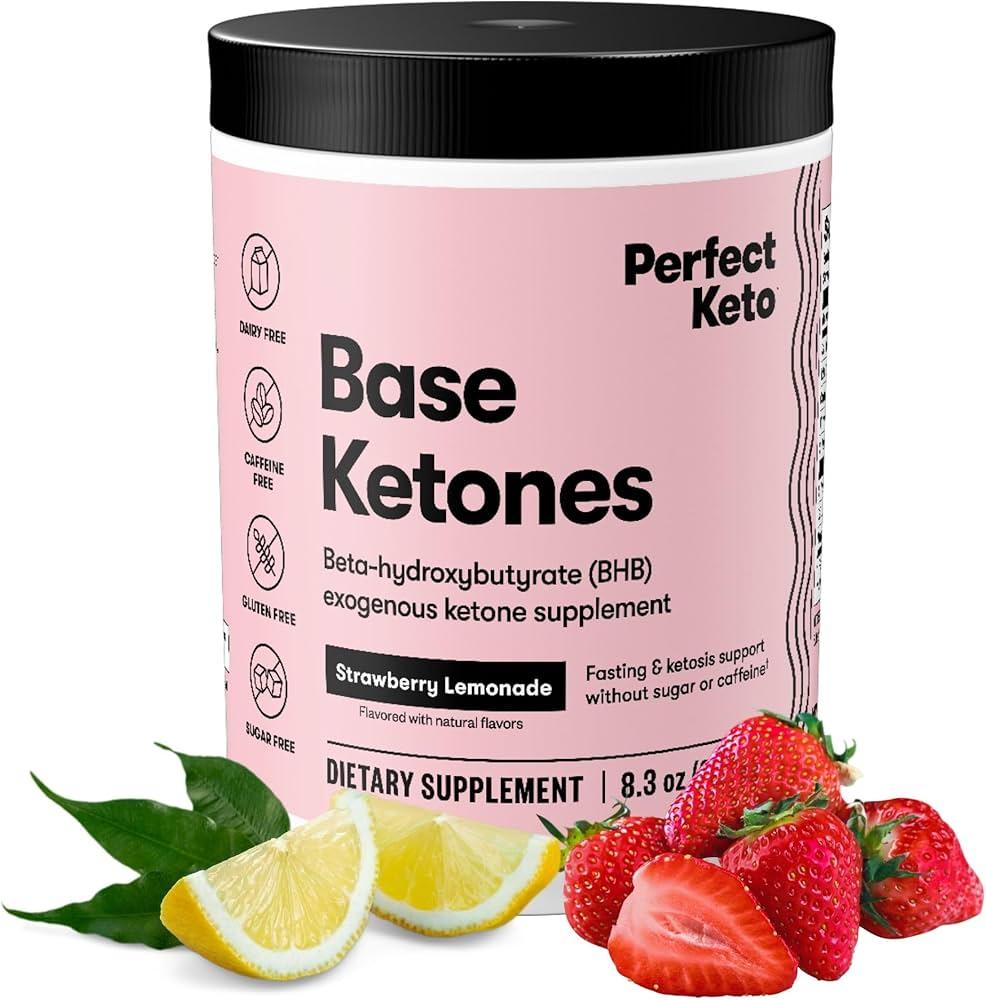In the ever-evolving landscape of nutrition adn athletic performance, the everlasting debate between the benefits of various fats has taken center stage, particularly within the realm of ketogenic diets. As athletes and wellness enthusiasts increasingly seek to optimize their energy sources, two contenders have emerged at the forefront: Sports Research MCT Oil and traditional Coconut Oil. Both boast a plethora of health benefits, yet their roles in supporting ketosis—a metabolic state characterized by the utilization of fat for fuel—are distinct. In this article, we will delve into the characteristics, advantages, and potential drawbacks of each, illuminating the path for those navigating their keto journey. Join us as we explore the science behind these oils, helping you determine which might be the better ally in your quest for enhanced performance and metabolic efficiency.
Understanding MCT Oil and Coconut Oil in the Context of Ketosis
In the realm of ketogenic diets, understanding the unique properties of MCT oil and coconut oil is essential for optimizing fat metabolism. MCT oil, derived from medium-chain triglycerides found in coconut and palm oil, undergoes rapid absorption in the body and is converted to ketones more efficiently than long-chain fats. This makes it a popular choice for individuals seeking to maintain or deepen ketosis. Key benefits of incorporating MCT oil include:
- speedy Energy Source: MCTs can rapidly fuel workouts and daily activities.
- Enhanced Ketone Production: MCT oil supports higher levels of ketones, aiding in cognitive function.
- Weight Management: MCTs may promote satiety, possibly leading to reduced calorie intake.
On the other hand, coconut oil is primarily composed of medium and long-chain fatty acids, offering a different profile of benefits. While it also contains MCTs, it includes lauric acid, which has unique antimicrobial properties. Coconut oil’s slower absorption rate means it may provide a more gradual energy source, potentially beneficial for longer-lasting energy throughout the day. Some interesting points about coconut oil are:
- Nutrient-Rich: Provides vitamins and antioxidants that support overall health.
- Versatile Culinary Use: Great for cooking and baking, adding flavor to dishes.
- Support for Heart Health: May boost HDL cholesterol levels, promoting cardiovascular wellbeing.

Comparative Analysis of fatty Acid Profiles and Metabolic effects
The fatty acid profiles of Sports Research MCT Oil and coconut oil reveal significant differences that impact their effectiveness for achieving and maintaining ketosis. Sports Research MCT Oil primarily contains medium-chain triglycerides (MCTs) such as caprylic and capric acid, which are rapidly absorbed and converted into ketone bodies. By contrast, coconut oil, while a natural source of MCTs, consists of a greater proportion of lauric acid, which is classified as a long-chain fatty acid and metabolizes differently.Consumers seeking immediate energy from ketones may find MCT oil to be a more effective option due to its biochemical structure, which enhances rapid ketogenesis.
In terms of metabolic effects, the unique fatty acid compositions contribute to various health benefits.MCT oil may support weight loss by promoting increased energy expenditure and fat oxidation, while coconut oil can benefit heart health through its antimicrobial properties and potential to improve lipid profiles. The choice between the two oils may ultimately depend on individual dietary goals and metabolic responses.Below is a concise comparison of their key attributes:
| Attribute | Sports Research MCT Oil | Coconut Oil |
|---|---|---|
| Fatty Acid Profile | high in MCTs (Caprylic, Capric) | Rich in Lauric Acid |
| Ketone Production | Rapid | Moderate |
| Weight Loss Support | Yes | Possible |
| Heart Health Benefits | Limited | Yes |

Practical Applications: choosing the Right Oil for Athletic Performance
In the competitive world of athletics, the choice of oil can considerably impact performance and recovery. When considering Sports Research MCT Oil versus Coconut Oil, athletes should evaluate their individual energy needs and goals. MCT oil, derived from coconut oil, is rich in medium-chain triglycerides that are quickly metabolized into usable energy, making it a favorite among those aiming for rapid fuel during workouts. It offers a direct pathway to ketones, which can enhance physical endurance and promote fat burning. conversely,coconut oil,while also providing healthy fats,contains a larger proportion of long-chain triglycerides,which may not convert into energy as swiftly.
When selecting the right oil, it’s crucial to consider how each type fits into your training regimen. Here are some factors to weigh:
- Energy Levels: MCT oil may provide a more immediate energy boost.
- Ease of Digestion: MCT oil is frequently enough easier on the stomach, especially before workouts.
- Culinary Use: Coconut oil can be more versatile for cooking, adding flavor to dishes.
- Keto compliance: MCT oil is favored in strict ketogenic diets for achieving desired ketone levels.
To further clarify their differences, here’s a concise comparison:
| Feature | Sports Research MCT Oil | Coconut Oil |
|---|---|---|
| Fatty Acid composition | High in Medium-Chain Triglycerides | Higher in Long-chain Triglycerides |
| Metabolism Speed | Fast | Moderate |
| Usage in Diet | Supplemental fuel | Cooking and baking |
| Flavor Profile | Neutral | Distinct coconut flavor |

Expert Recommendations for optimal Use in a Ketogenic Diet
To maximize the benefits of a ketogenic diet, incorporating MCT oil and coconut oil effectively can create a harmonious balance to enhance fat utilization and maintain ketosis. MCT oil, due to its rapid absorption and conversion to ketones, is particularly beneficial for quick energy, especially during workouts. For those engaged in intense training or endurance sports, consider using MCT oil as a pre-workout supplement. It’s advisable to start with small servings to gauge individual tolerance and avoid gastrointestinal discomfort, gradually increasing to 1-2 tablespoons as tolerated. Use it in smoothies or coffee for a tasty energy boost!
Conversely, coconut oil promotes a feeling of fullness and provides a steady supply of energy, making it ideal for meal readiness. Integrating it into your cooking can enhance flavor while supporting your overall health. When utilizing coconut oil, consider incorporating it into baking or sautéing your favorite low-carb vegetables. For a triumphant ketogenic lifestyle, aim for a blend of both oils throughout your week; for example:
| Day | Oil Type | Usage |
|---|---|---|
| Mondays | MCT oil | In smoothies |
| Tuesdays | Coconut Oil | Cooking vegetables |
| Wednesdays | MCT Oil | In coffee |
| Thursdays | Coconut Oil | In baking |
| Fridays | MCT Oil | post-workout smoothie |
This approach not only diversifies your nutrient intake but also optimizes your body’s ability to maintain ketosis while ensuring you’re energized and satiated throughout the week.
insights and Conclusions
the decision between Sports Research MCT Oil and coconut oil ultimately hinges on your individual goals, lifestyle, and personal preferences.Each option brings its unique benefits to the table, offering powerful support for those embarking on a ketogenic journey.Whether you gravitate towards the concentrated, rapid-energy boost of MCTs or the versatile, nutrient-dense qualities of coconut oil, understanding their differences is key to making an informed choice. As you navigate the dynamic landscape of health and nutrition, remember that what works best for one may not hold the same promise for another. Armed with knowledge, you can tailor your dietary approach to fit your needs and preferences, paving the way for a successful and sustainable ketogenic lifestyle. So, why not give both a try and discover which one fuels your journey more effectively? The path to ketosis can be as diverse as our individual tastes—embrace it!



